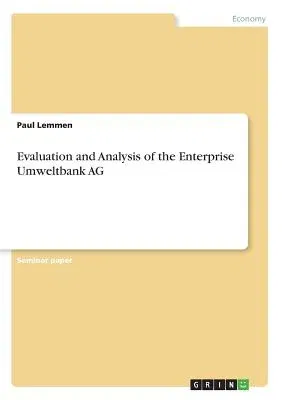Seminar paper from the year 2017 in the subject Business economics -
Operations Research, grade: 95,5%, EBS European Business School gGmbH,
language: English, abstract: Enterprises nowadays face unprecedented
market demands concerning social responsibility. Especially society's
environmental consciousness has increased tremendously in the past
decades and particularly in recent years. Simultaneously, consumer's
willingness to pay for social and ecologically friendly products and
services has increased drastically. On the one hand, these changes in
perception of environmental issues lead to challenges for businesses as
they have to adapt their business model to trends in society. On the
other hand, these changes provide opportunities for businesses. In
several industries, ecological products and services have been
established by many businesses. Sustainability in the western world is
omnipresent. Supermarkets for example offer a wide range of biological,
sustainable products. Gas stations offer bio fuel. And fair trade green
fashion has developed to an integral part of the fashion industry. At
first sight, bank's products and services themselves do not pollute.
Banks do not seem to cause any direct ecologically harmful emissions.
However, on closer inspection, through their financing function banks
play a key role in the protection of the environment. By financing
certain projects, banks indirectly influence pollution . To minimize the
environmental footprint, banks would need to interfere with the
activities of their clients. That would mean declining credit requests
from clients who want to carry out projects which are not sustainable.
This approach is diametrically opposed to traditional bank's primary
goal of profit maximization. Also, money cannot be qualified as either
good or bad. It depends on what people invest in. As shown, neither
banks nor their clients are solely responsible for the pollution of our
environment. Both players must take action to contribu


